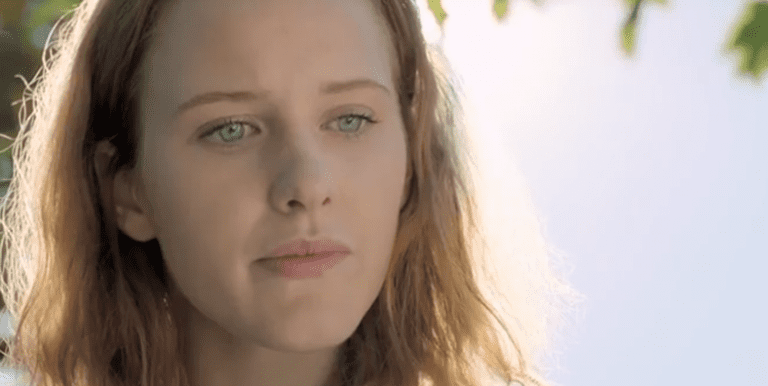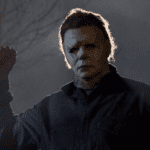
Paul Asay: Change in the Air has a pretty dreamy quality at times. You’ve got the main character, Wren (Rachel Brosnahan), who moves into this pretty elderly neighborhood and becomes this object of fascination. She gets all this mail, for one thing, which her busybody neighbor Jo Ann (Mary Beth Hurt) just finds impossibly interesting. But she changes the vibe in that quiet neighborhood, and through her presence, some long-festering secrets start burbling up. Tell me a little bit about what this movie is trying to say.
Dianne Dreyer: The movie is talking about forgiveness beginning with yourself, and the idea that you have to let go of something before healing can even begin. I think that’s true in life, and that doesn’t necessarily mean that you’re going to heal quickly if at all. But the step has to be initiated by you. The idea that someone comes into your life, and sets an example or offers you a path to me is one of the things I hold onto in my own life.
There are many, many people who have suffered tragedies in their life who never like it when someone says there are no accidents, right? They reel against that. But I don’t. I actually believe that. I believe that whatever happens in your life must lead you to the next place in your life. No matter how painful it is. My family suffered a terrible tragedy when my brother died when he was 18. And of course I couldn’t say that in the moment, but I have come to view that as the most pivotal, critical, positive event in my life. I don’t think I would’ve become the woman I became without having to endure that loss and go through it with my family. I just don’t think I would be who I am.
Asay: It reminds me of an interview I read of [talk-show host] Stephen Colbert in GQ some time ago. His father and two brothers died in a plane crash, and he talked about how that crash changed his life. He quoted J.R.R. Tolkien, who said, “What punishments of God are not gifts?” That’s always stuck with me.
Dreyer: That’s funny. I didn’t know that he was Catholic. … I was also raised a Catholic, although my mother got out of a very abusive, violent, alcoholic marriage when I was 3, and then she married my father—the man who became my father and raised me. He was Jewish, so my sister and I continued to receive sacraments in the Catholic church, and my brother had a bar mitzvah.
I’ve never met anyone who had the moral high ground the way that he did. He encouraged us in such simple and fun ways—this idea of contemplation, reflection on your day, prayer. The idea of education, being responsible for yourself. And he liked to do things as a family.
He always had a jigsaw [puzzle] in progress [that we’d work on together]. I wasn’t really conscious of it at the time, but it was a way he could talk to us children and hear what’s going on in our lives without in any way being confrontational. Because you’re just trying to find puzzle pieces. I don’t know why I say all that except that there are many, many gifts that we don’t recognize as gifts. My father was certainly a gift.
I met the woman who would become my best friend about five years before my brother’s passing. She was one of 10 children and was dealing with the loss of her sister who had died from cervical cancer [when we met]—the sister she was closest to in that giant family. And when I look back, and I think there was a reason why Gail came into my life. I would be dishonest if I said knowing her and watching her navigate that terrible time in her life wasn’t preparation for me. Who would’ve known that five years later I was going to be coping with the exact same thing? I don’t think it’s an accident, Paul. I just don’t.













